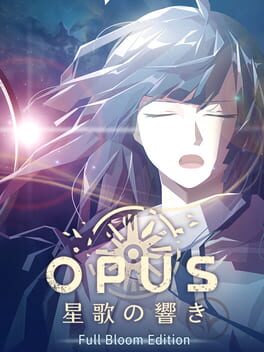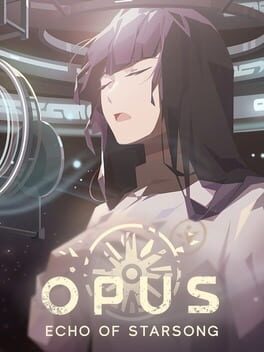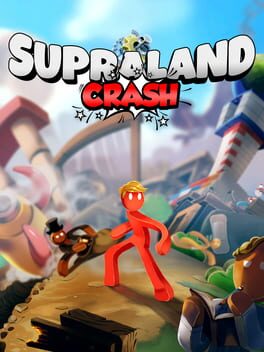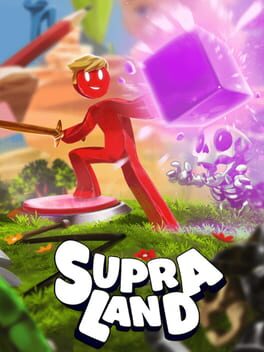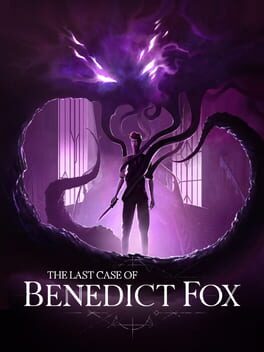szphi
25 Reviews liked by szphi
OPUS: Echo of Starsong is a lovely game, I’m always a fan of well crafted space operas and this really succeeds on three fronts. It manages a compelling sci-fi setting I was interested in learning more about, it has a unique style with beautiful music that lends itself well to its ethereal space faring atmosphere, and it also has a story that, while not very lengthy, felt genuinely touching by its end
OPUS is a franchise that has two prior standalone entries (The Day We Found Earth and Rocket of Whispers), and while they were well made for what they were, I didn’t think they were particularly noteworthy due to their limitations as smaller mobile games. Echo of Starsong in comparison is much more ambitious, set in the same universe of its predecessors but dramatically fleshing it out with an extensive amount of lore and descriptive text for every location, mural, artifact, and minor object that’s collected throughout. The result is a solar system that felt really well-realized, as you explore its numerous floating cities, abandoned stations, and mystical asteroid caves each with their own piece of worldbuilding to peer through. This is also greatly complicated by its wonderful aesthetics, with numerous detailed CG scenes and pleasing character art that really bring the setting to life
The story starts in medias res and follows a weary elder named Jun who’s searching for his lost love Eda, and his memories of their time together in his youth. Once a disgraced noble who traveled to the Thousand Peaks solar system in search of Lumen discoveries to claim under his name, he came to meet Eda and her pilot Remi and joined them as a member of their ship, gradually revealing the events that result in her disappearance in the present. For the time you spend with them I really enjoyed the characters, and the emotional core of the story is further enhanced by strong voice performances (of which is a new addition with Full Bloom Edition). I did have a gripe with how heavy it was on using flashbacks to flesh out the cast rather than developing them in the moment, but its general presentation and heartfelt tone made for effective storytelling
Now while this is a game focused on its narrative much like a visual novel, it does have gameplay elements to it. Its main focus is on resource management, as you explore a galaxy map of Thousand Peaks and search locations for supplies or fuel to upgrade your ship and venture further out into the system. In addition, you’ll encounter random events or obstacles that can have a positive or negative impact based on dice rolls and dialogue options. I actually really enjoyed this aspect of the game, as it was just relaxing to explore and visit whatever seemed interesting across the map. Finding new upgrades for the ship throughout was pretty fun too
There’s portions of the game where Jun leaves the ship and explores the caves on foot, and this is presented as a side-scroller with occasional puzzles to clear. The problem though is that it’s a bit repetitive, every cave more or less looks the same and each puzzle just consists of opening a door with a simple mini-game or activate other doors through connecting Lumen pipelines. Not a highlight, but the positives of the game more than made up for it and exploring each cave didn’t really last long enough to be grating
OPUS is a franchise that has two prior standalone entries (The Day We Found Earth and Rocket of Whispers), and while they were well made for what they were, I didn’t think they were particularly noteworthy due to their limitations as smaller mobile games. Echo of Starsong in comparison is much more ambitious, set in the same universe of its predecessors but dramatically fleshing it out with an extensive amount of lore and descriptive text for every location, mural, artifact, and minor object that’s collected throughout. The result is a solar system that felt really well-realized, as you explore its numerous floating cities, abandoned stations, and mystical asteroid caves each with their own piece of worldbuilding to peer through. This is also greatly complicated by its wonderful aesthetics, with numerous detailed CG scenes and pleasing character art that really bring the setting to life
The story starts in medias res and follows a weary elder named Jun who’s searching for his lost love Eda, and his memories of their time together in his youth. Once a disgraced noble who traveled to the Thousand Peaks solar system in search of Lumen discoveries to claim under his name, he came to meet Eda and her pilot Remi and joined them as a member of their ship, gradually revealing the events that result in her disappearance in the present. For the time you spend with them I really enjoyed the characters, and the emotional core of the story is further enhanced by strong voice performances (of which is a new addition with Full Bloom Edition). I did have a gripe with how heavy it was on using flashbacks to flesh out the cast rather than developing them in the moment, but its general presentation and heartfelt tone made for effective storytelling
Now while this is a game focused on its narrative much like a visual novel, it does have gameplay elements to it. Its main focus is on resource management, as you explore a galaxy map of Thousand Peaks and search locations for supplies or fuel to upgrade your ship and venture further out into the system. In addition, you’ll encounter random events or obstacles that can have a positive or negative impact based on dice rolls and dialogue options. I actually really enjoyed this aspect of the game, as it was just relaxing to explore and visit whatever seemed interesting across the map. Finding new upgrades for the ship throughout was pretty fun too
There’s portions of the game where Jun leaves the ship and explores the caves on foot, and this is presented as a side-scroller with occasional puzzles to clear. The problem though is that it’s a bit repetitive, every cave more or less looks the same and each puzzle just consists of opening a door with a simple mini-game or activate other doors through connecting Lumen pipelines. Not a highlight, but the positives of the game more than made up for it and exploring each cave didn’t really last long enough to be grating
I could spend my time here talking about the many misgivings I have with the storytelling, but it really does not matter, cause no matter what criticism I had about it’s “redundancy” or how “amateur” it is, I would still always find myself at the sidelines cheering them on. Hoping and praying that these two characters who needed each other more than anyone else would be able to communicate their feelings to one another. A desire to see these two find a speck of happiness, a moment of catharsis for all the frustration I felt in watching them awkwardly try to navigate their blossoming emotions in spite of their trauma and responsibilities.
You could call this ever present desire of mine my weakness, and it’s this weakness that Echo of Starsong exploits to hurt me in ways fiction never has before.
I’ve spent multiple hours just constantly replaying the final moments over and over in my head, looking for a silver lining, a recognition that my catharsis wasn’t stolen for nothing, but there’s no light at the end of this tunnel, just a field of regrets.
You could call this ever present desire of mine my weakness, and it’s this weakness that Echo of Starsong exploits to hurt me in ways fiction never has before.
I’ve spent multiple hours just constantly replaying the final moments over and over in my head, looking for a silver lining, a recognition that my catharsis wasn’t stolen for nothing, but there’s no light at the end of this tunnel, just a field of regrets.
There's not a whole lot to the gameplay besides passing dice rolls, resource management, and tuning songs, but the story and the lore are fantastically well told and the characters really prod at your heartstrings. And the soundtrack is just as beautiful as the previous entries in the universe. If you're looking for a more low-key narrative heavy adventure game, give this overlooked title a shot.
Pentiment
2022
The roots of our communities are an intricate system, too large for any one of us to imagine. In every discovery of fresh soil, we find a long history of its breaking and in our investigation find those same roots again. They connect us all, they teach us lessons. They wrap around our necks, crawl around old bones. We perform dramas about escaping their hold or burning the whole tree but these roots remain. Sooner or later, someone's bound to find our choices in the soil.
Pentiment
2022
Sights & Sounds
- It's very likely the game's artstyle drew you to it. It's certainly what piqued my interest. I'm happy to report that it does indeed look amazing, with the highly stylized artstyle reflecting the medieval paintings and illuminated manuscripts produced in Bavaria during the 1500s
- I was also pleasantly surprised by the game's text boxes, which feels like a weird thing to say. There's all sorts of neat little touches. If you're talking to a monk or nun, their speech bubbles will be written in a old-timey gothic script. If you're talking to a printer, the text will plop down on the bubble with a satisfying "clunk" of an old printing press. The text bubbles of people speaking other languages will autotranslate if you have a skill that helps you speak that language. In all, a really cool approach to dialogue
- The music is excellent and similarly of its time. The vocal tracks are especially nice and were a little unexpected
Story & Vibes
- You play as a Flemish artist named Andreas who is living in Bavaria while he works on his masterpiece that will allow him to become a master artist. A mystery erupts suddenly after a local baron visits the town. You'll interview people, play a few minigames and puzzles, and use your best judgement to solve both this mystery and the two others that crop up later in the game
- I'm being intentionally vague in describing the plot. The story is extremely compelling and well-written, so I don't want to spoil anything. It's definitely one worth experiencing
- The writing is also incredibly good, which helps breathe life into the several townsfolk and tourists you'll encounter. Each character feels unique and interesting. Most of them have pasts and relationships that really flesh them out and make Tassing feel much more lifelike. This level of immersion is really impressive when you take a step back and realize that the screen looks like a painting
- It's not all serious, though. The game does have a rich sense of humor. Beyond the occasional situational humor and wry dialogue, you'll also play a few pranks and even be given the chance to headbutt an ♥♥♥♥♥♥♥ doctor if you choose the right options
Playability and Replayability
- I'm happy that this is an adventure game where narrative choices actually have an impact on the story. Depending on whether or not you piss off the church in the first chapter, the second chapter can have a very different feel to it. Remember that justice was a little more bloody in medieval times, so whomever you implicate as the perpetrators of the various mysteries you solve will face dire consequences
- Beyond the typical walking and talking you'd expect in an adventure game, there's not much gameplay. Not that it's necessary in a game like this, but you won't even be managing an inventory
- Given the narrative focus and the ability to converse with your own mind when faced with certain dialogue choices, I've seen some reviewers compare the game to Disco Elysium. While there are some superficial similarities and they'll largely appeal to the same audience, you'll be doing Pentiment a disservice if you go into it expecting the same experience. Disco Elysium is such a unique (and in my opinion, better) game that it's not fair judge Pentiment against that sort of masterpiece
- I understand that it's difficult (or maybe even impossible) to implement a chapter select in a game where choices matter, but I still really wish there was a chapter select. I want to go back for the achievements I missed. Quick tip for achievement fiends: when it comes time to accuse someone of a crime, be sure to quit to the menu after the achievement pops. You'll be able to make the choice again to collect the other missable ones
Overall Impressions & Performance
- Although the game is gorgeous on a larger display, it really shines as a Steam Deck title. It's fully verified and runs perfectly. The frequent autosaves and exploration/narrative focus make it an easy game to pick up and put down whenever you're interested in delving a little deeper into Tassing's mysteries
- Depending on how thorough you are on each day of the game's story, you'll wind up with a wide range of completion times. It's probably possible to beat this game in as little as 12 hours if you don't do much exploration, but what's the fun in that? There's a lot of good dialogue to read, history to learn, and subplots to unearth
Final Verdict
9/10. If you're a fan of narrative-focused games and like your choices to have an actual story impact, this is well worth full price. It's really hard to complain about a game with dollar-per-hour value that spins a tale this good. If you like the art style and enjoy a good mystery, this is easy to recommend
- It's very likely the game's artstyle drew you to it. It's certainly what piqued my interest. I'm happy to report that it does indeed look amazing, with the highly stylized artstyle reflecting the medieval paintings and illuminated manuscripts produced in Bavaria during the 1500s
- I was also pleasantly surprised by the game's text boxes, which feels like a weird thing to say. There's all sorts of neat little touches. If you're talking to a monk or nun, their speech bubbles will be written in a old-timey gothic script. If you're talking to a printer, the text will plop down on the bubble with a satisfying "clunk" of an old printing press. The text bubbles of people speaking other languages will autotranslate if you have a skill that helps you speak that language. In all, a really cool approach to dialogue
- The music is excellent and similarly of its time. The vocal tracks are especially nice and were a little unexpected
Story & Vibes
- You play as a Flemish artist named Andreas who is living in Bavaria while he works on his masterpiece that will allow him to become a master artist. A mystery erupts suddenly after a local baron visits the town. You'll interview people, play a few minigames and puzzles, and use your best judgement to solve both this mystery and the two others that crop up later in the game
- I'm being intentionally vague in describing the plot. The story is extremely compelling and well-written, so I don't want to spoil anything. It's definitely one worth experiencing
- The writing is also incredibly good, which helps breathe life into the several townsfolk and tourists you'll encounter. Each character feels unique and interesting. Most of them have pasts and relationships that really flesh them out and make Tassing feel much more lifelike. This level of immersion is really impressive when you take a step back and realize that the screen looks like a painting
- It's not all serious, though. The game does have a rich sense of humor. Beyond the occasional situational humor and wry dialogue, you'll also play a few pranks and even be given the chance to headbutt an ♥♥♥♥♥♥♥ doctor if you choose the right options
Playability and Replayability
- I'm happy that this is an adventure game where narrative choices actually have an impact on the story. Depending on whether or not you piss off the church in the first chapter, the second chapter can have a very different feel to it. Remember that justice was a little more bloody in medieval times, so whomever you implicate as the perpetrators of the various mysteries you solve will face dire consequences
- Beyond the typical walking and talking you'd expect in an adventure game, there's not much gameplay. Not that it's necessary in a game like this, but you won't even be managing an inventory
- Given the narrative focus and the ability to converse with your own mind when faced with certain dialogue choices, I've seen some reviewers compare the game to Disco Elysium. While there are some superficial similarities and they'll largely appeal to the same audience, you'll be doing Pentiment a disservice if you go into it expecting the same experience. Disco Elysium is such a unique (and in my opinion, better) game that it's not fair judge Pentiment against that sort of masterpiece
- I understand that it's difficult (or maybe even impossible) to implement a chapter select in a game where choices matter, but I still really wish there was a chapter select. I want to go back for the achievements I missed. Quick tip for achievement fiends: when it comes time to accuse someone of a crime, be sure to quit to the menu after the achievement pops. You'll be able to make the choice again to collect the other missable ones
Overall Impressions & Performance
- Although the game is gorgeous on a larger display, it really shines as a Steam Deck title. It's fully verified and runs perfectly. The frequent autosaves and exploration/narrative focus make it an easy game to pick up and put down whenever you're interested in delving a little deeper into Tassing's mysteries
- Depending on how thorough you are on each day of the game's story, you'll wind up with a wide range of completion times. It's probably possible to beat this game in as little as 12 hours if you don't do much exploration, but what's the fun in that? There's a lot of good dialogue to read, history to learn, and subplots to unearth
Final Verdict
9/10. If you're a fan of narrative-focused games and like your choices to have an actual story impact, this is well worth full price. It's really hard to complain about a game with dollar-per-hour value that spins a tale this good. If you like the art style and enjoy a good mystery, this is easy to recommend
Pentiment
2022
Supraland Crash
2020
This DLC is overhated. People are actually mad that they toned down the combat? The combat from the base game was ass and it was shoved down your throat every 2 seconds. In my opinion, I probably enjoyed the first game slightly more, but this one is not far behind.
Exploration is toned down for this one which has its pros and cons depending on your tastes. Getting lost was a big issue in the first one, however it detracts from the 'play at your own pace' mindset that a game like this needs.
The puzzles are plentiful and ingenious, just like the first game. I was surprised by the amount of new mechanics thrown in as well. From descriptions and reviews, I was certain that this would just be 'more Supraland'. While abilities are mostly the same, the way you use them is completely different. Once again, I was floored by some of these puzzle solutions.
A lot of the games mechanics have been tweaked to make for a much better experience. For example, chests are much more rewarding this time around as there are less of them. Just simple changes like this go a long way.
Music is fine but doesn't quite reach the heights of Supraland (which wasn't a high bar anyway). The artstyle has improved quite a bit in my opinion although that might just be me. Story is more intriguing and the writing is a little bit better - though that's not saying much.
The developer straight up lied again about the games length so I would recommend buying this one on offer if you want your moneys worth. So excited for Six Inches Under.
Exploration is toned down for this one which has its pros and cons depending on your tastes. Getting lost was a big issue in the first one, however it detracts from the 'play at your own pace' mindset that a game like this needs.
The puzzles are plentiful and ingenious, just like the first game. I was surprised by the amount of new mechanics thrown in as well. From descriptions and reviews, I was certain that this would just be 'more Supraland'. While abilities are mostly the same, the way you use them is completely different. Once again, I was floored by some of these puzzle solutions.
A lot of the games mechanics have been tweaked to make for a much better experience. For example, chests are much more rewarding this time around as there are less of them. Just simple changes like this go a long way.
Music is fine but doesn't quite reach the heights of Supraland (which wasn't a high bar anyway). The artstyle has improved quite a bit in my opinion although that might just be me. Story is more intriguing and the writing is a little bit better - though that's not saying much.
The developer straight up lied again about the games length so I would recommend buying this one on offer if you want your moneys worth. So excited for Six Inches Under.
Supraland
2019
A very "intelligently" designed game, for better and for worse!
It's interesting because at first glance you'd think that the game would be like a sandbox (it literally takes place in one) where you can use the many tools at your disposal to come up with all kinds of solutions to the puzzles, but in actuality pretty much every puzzle has such a tight design that deviating even slightly from the intended solution will result in failure. BUT the solutions themselves are very clever in how they use the mechanics/environments and it's impressive how much mileage the game gets out of relatively simple physics. Almost too clever at times actually- there is 0% chance I would have come up with some of the things the game was expecting me to do without a guide- but I felt very smart whenever I did manage to figure something out for myself!
Was surprised by how nothing the story was though... like I wasn't expecting it to be life changing or anything like that but it somehow managed to fumble the little that was there. Also the humor was VERY dated, like, some of these references were deep cuts. But the game was way more about the mechanics than anything else though, so, whatever! It handled well and that was the important thing.
It's interesting because at first glance you'd think that the game would be like a sandbox (it literally takes place in one) where you can use the many tools at your disposal to come up with all kinds of solutions to the puzzles, but in actuality pretty much every puzzle has such a tight design that deviating even slightly from the intended solution will result in failure. BUT the solutions themselves are very clever in how they use the mechanics/environments and it's impressive how much mileage the game gets out of relatively simple physics. Almost too clever at times actually- there is 0% chance I would have come up with some of the things the game was expecting me to do without a guide- but I felt very smart whenever I did manage to figure something out for myself!
Was surprised by how nothing the story was though... like I wasn't expecting it to be life changing or anything like that but it somehow managed to fumble the little that was there. Also the humor was VERY dated, like, some of these references were deep cuts. But the game was way more about the mechanics than anything else though, so, whatever! It handled well and that was the important thing.
Supraland
2019
I really wanted to give it 4 stars. The player is given a wide variety of tools that are both unique and fun to mess around with. The puzzles are quite clever, with many of the best ones teaching players new ways to interact with the environment. These revelations assist players in discovering more secrets when exploring the hub, and it all works together well. Even though the combat is a bit dull and some mechanics are a bit clunky, I was ready to highly recommend the game.
However, as I booted up the game to explore further, my story progress was wiped. My 76% completion rating was reduced to 1%, and I lost all stat increases. The strange part is that I still had all unlockable abilities, including ones in the late game, meaning I could progress out of the intended order. I tried to make sure I hadn't accidentally deleted my own save, or accessed a New Game + mode by mistake, but it seems like my save file was corrupted.
It is fortunate that I had reached the credits before this error occurred, so I was able to enjoy the intended experience. That said, I'm still dejected about losing hours of progress and my shot at a platinum trophy. Even if this error is unlikely, it seems plausible that this can happen to anyone at any point in the game, so I can't rate it any higher than a 6 while this is still possible.
However, as I booted up the game to explore further, my story progress was wiped. My 76% completion rating was reduced to 1%, and I lost all stat increases. The strange part is that I still had all unlockable abilities, including ones in the late game, meaning I could progress out of the intended order. I tried to make sure I hadn't accidentally deleted my own save, or accessed a New Game + mode by mistake, but it seems like my save file was corrupted.
It is fortunate that I had reached the credits before this error occurred, so I was able to enjoy the intended experience. That said, I'm still dejected about losing hours of progress and my shot at a platinum trophy. Even if this error is unlikely, it seems plausible that this can happen to anyone at any point in the game, so I can't rate it any higher than a 6 while this is still possible.
